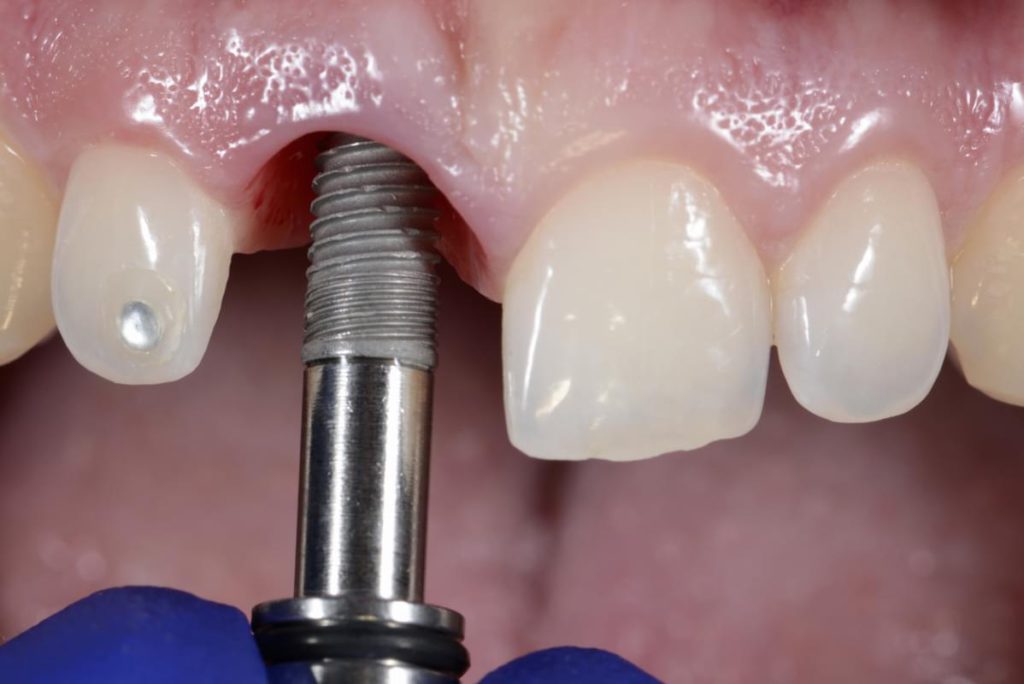
Implantation is an effective technique for restoring the aesthetics and direct functions of the dentition. It allows you to completely restore your smile, restore its beauty and ensure the normal performance of chewing functions. The main problem with implantation is that it takes a long time.
In most cases, implantation takes place in two stages. At the first stage, the doctor performs the operation and installs the rod under the future design. At the second stage, after 3-6 months, provided that the rod has taken root, the surgeon installs an orthopedic structure, that is, the tooth itself.
Such a long wait for engraftment creates tangible discomfort. And it can be avoided by resorting to the procedure of one-stage implantation, which allows you to combine the extraction of a tooth, the installation of an implant and a temporary crown. Also, as part of a one-stage procedure, it is possible to increase the volume of the jawbone if it has become thinner with age. Naturally, no one will immediately install a permanent crown for you, since you need to wait for the structure to take root. But a temporary crown will minimize discomfort in the period between surgery and the installation of an artificial tooth.
What are the advantages of one-stage implantation:
- In principle, implantation is the only technique that completely restores the chewing function of the jaw, the aesthetics of the dentition and the volume of the jawbone;
- By resorting to a one-time procedure, you save time and avoid discomfort due to the installed temporary crown;
- The survival rate is more than 98%. The risk of implant rejection is minimal;
- Restoration of aesthetics in one day. The temporary crown completely repeats the shape and color of the natural tooth, so that the smile will be restored after the first visit to the doctor.
Implantation is never carried out without prior approval from the attending physician. The dentist must examine the condition of the oral cavity, diagnose and, based on the data obtained, develop a treatment program. Next, the doctor will tell you in detail about what awaits you, how long it will take, and how much money it will cost. It is also important to make sure that there are no contraindications, since in some cases implantation can be hazardous to health.
